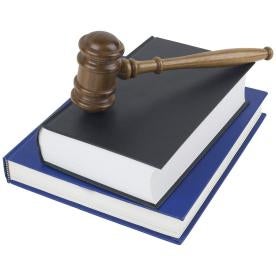Takeaway: The rules prohibit the filing of a motion without prior authorization. Because e-mails to the Board may act as an attempt to circumvent this rule, parties should limit e-mail communications to the Board to requests for a conference call, including only a short explanation as to why the party requests the call, and avoid including substantive discussions.
In its Order, the Board ordered that no reply is authorized to be filed and that “except as otherwise authorized in the Rules of Practice in Patent Cases, 37 C.F.R. § 42 et. seq., no motions or other substantive correspondence may be filed in these proceedings without prior, express authorization.”
Counsel for Petitioner had previously contacted the Board by email “requesting a conference call to seek authorization to file a Reply to Patent Owner’s Preliminary Response.” Patent Owner thereafter responded by email “providing substantive arguments regarding Petitioner’s request.”
Before addressing the request, the Board first cautioned the parties:
The parties are reminded that 37 C.F.R. § 42.20(b) expressly prohibits the filing of a motion without prior authorization. Substantive e-mails to the Board merely act as an attempt to circumvent this rule. As such, we have not considered Patent Owner’s e-mail of December 15, 2015. The parties are instructed to limit future e-mail communications to the Board to requests for a conference call, including only a short explanation as to why the party requests the call, and to avoid including substantive discussions in e-mail communications.
Further, because an “inter partes review may not be authorized unless the information presented in the Petition shows a reasonable likelihood that Petitioner would prevail with respect to at least one of the challenged claims,” “[a]llowing Petitioner to file a Reply at this stage would be tantamount to providing additional pages for the Petition.”
In addressing the request, the Board was “not persuaded that additional briefing on the issue of whether certain references have been shown to be prior art printed publications is warranted at this time.” Petitioner “has the burden to establish in its Petition a reasonable likelihood of success, including, among other things, making a threshold showing that the relied upon references are ‘printed publications’ within the meaning of 35 U.S.C. §§ 102 and 311(b).” Further, “Petitioner waited six weeks after the filing of the Preliminary Responses to contact the Board with this request,” however, by statute, “the Board has only three months from the date of filing of a Preliminary Response to make a determination whether to institute an inter partes review.” Thus, “[a]llowing additional briefing at this time could hinder the Board’s ability to timely reach an institution decision.” Therefore, the Board denied Petitioner’s request for authorization to file a Reply.
Hewlett-Packard Co. v. U.S. Philips Corp., et al., IPR2015-01505
Paper 15: Order on Conduct of Proceedings
Dated: December 16, 2015
Patent: 5,777,992
Before: Brian J. McNamara, Scott A. Daniels, and Jennifer Meyer Chagnon
Written by: Chagnon
Related Proceedings: IPR2015-01506 (U.S. Pat. No. 5,539,829); IPR2015-01507 (U.S. Pat. No. 5,323,396).



 i
i

